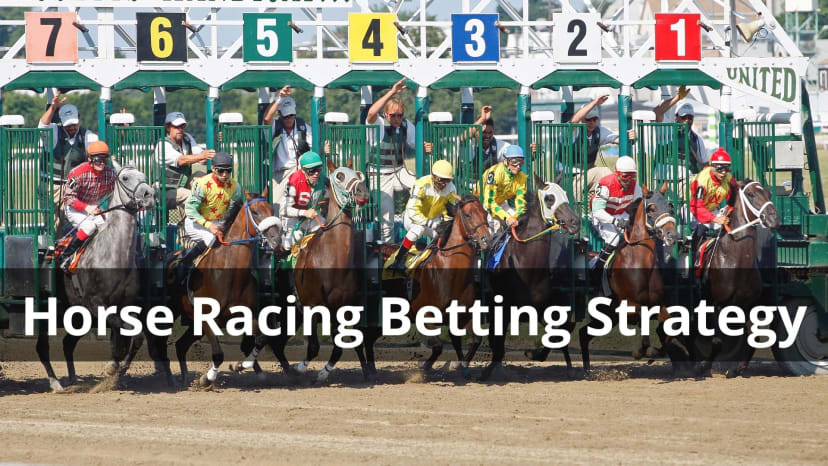Baseball Betting Strategy

Are you a fan of baseball? Are you ready to take your love for the game to the next level? If so, then you've come to the right place. In this article, we will dive deep into the world of baseball betting strategy, uncovering tips and tricks to help Rwandan players make smarter bets and maximize their winnings.
1. Understanding Baseball Analytics for Betting
The first step to profitable baseball betting is understanding which data truly matters. Traditional statistics such as batting average and ERA are too simplistic to provide an edge in today’s betting markets. Instead, successful bettors rely on advanced analytics that offer predictive insights.
- Expected Fielding Independent Pitching (xFIP) is a refined pitching stat that estimates what a pitcher's ERA should be, independent of defensive play. It accounts for outcomes a pitcher can control — such as strikeouts, walks, and home runs — and adjusts them using a league-average home run-to-fly ball ratio. A pitcher with a low ERA but a significantly higher xFIP may have benefited from luck or strong defense, signaling likely regression and an opportunity to bet against them.
- Weighted On-Base Average (wOBA) is a superior measure of offensive production compared to traditional metrics like batting average or OPS. It weights outcomes such as walks, singles, doubles, and home runs according to their actual impact on scoring, giving a clearer picture of a hitter’s contribution to the team.
- Batting Average on Balls in Play (BABIP) is useful for identifying players or pitchers experiencing unsustainable performance. For example, a pitcher with an extremely low BABIP may be getting lucky with defensive plays or soft contact, which often reverts to the mean over time.
- Hard Hit Rate shows how often a batter makes solid contact — a more reliable predictor of future performance than batting average alone. And Bullpen Win Probability Added (WPA) helps you evaluate how effective relief pitchers are in crucial situations, an often overlooked but essential factor when betting full-game outcomes.
2. Developing a Systematic Betting Approach for Rwanda Players
Success in baseball betting comes not from hot streaks or gut feelings but from disciplined, consistent analysis. Every bet you place should be the result of a deliberate process.
Start with pre-game analysis, beginning with starting pitcher matchups. Examine their xFIP, strikeout-to-walk ratio, recent velocity changes, and quality of contact allowed. Next, look into team platoon splits, especially left vs. right-handed matchups — some lineups are built to dominate specific handedness. Momentum matters too, so assess recent form by analyzing team and player performance over the last 7–10 games.
Weather is another critical factor, as wind direction and temperature significantly influence scoring. A strong wind blowing out can lead to high-scoring games, while cooler temperatures might suppress offense. Lastly, understand umpire tendencies. Some umpires have tight strike zones, favoring hitters, while others call more strikes, which benefits pitchers and affects totals.
On the market evaluation side, always compare odds across multiple sportsbooks to find the best value. Monitor line movements throughout the day to identify significant shifts, often referred to as “steam moves,” which may indicate sharp money entering the market. Learn to calculate implied probabilities from odds and compare them to your own projections. If you see value — where your probability of success exceeds that implied by the odds — that’s where your edge lies.
To maintain a consistent edge, keep thorough documentation. Track every bet you place, noting the type, reasoning, result, and any relevant stats. This historical log allows for regular reviews and refinement of your strategies.
Pro Tip: Create a standardized pre-game checklist that covers key stats, market evaluations, and environmental factors to ensure no critical data is overlooked.
3. Market Analysis and Timing for Smarter Bets in Rwanda
Timing is a subtle but powerful element in sports betting. Betting the right side at the wrong time can cost you valuable points or worse lines. Understanding the difference between early and late markets will help you optimize your edge.
Early markets, or opening lines, often present the greatest value, particularly for sharp bettors who have done their homework. These lines are released with less information available — such as confirmed lineups or final weather reports — but they also have larger limits and greater variance. If you trust your analysis, betting early allows you to capitalize before the market sharpens.
On the other hand, late markets offer more certainty. You’ll know the official lineups, latest injury updates, and confirmed weather, which allows for more informed betting decisions. However, the downside is that the lines are often sharper, and limits may be lower.
To succeed, monitor line movements throughout the day using odds comparison tools. If you find significant movement backing a side you like, it may signal sharp action. For weather-dependent totals or pitcher-specific matchups, wait until closer to game time when lineups and conditions are verified. One of the best metrics to evaluate your long-term edge is Closing Line Value (CLV) — if you consistently beat the final line, you’re likely making profitable bets.
4. Risk Management and Bankroll Strategy
No matter how sharp your analysis is, without strong bankroll management, you’re exposing yourself to unnecessary risk and volatility. Your bankroll is your capital — preserve it wisely.
Smart bettors limit their exposure per game to 1–3% of their total bankroll. Daily exposure should be capped at around 5–8%, and it’s wise to establish a monthly drawdown limit (typically 15–20%) to protect against bad runs. Staying within these boundaries helps maintain long-term viability.
For more precise bet sizing, consider applying the Kelly Criterion, a formula that calculates the optimal stake based on your perceived edge and the odds offered. For example, if you estimate a 60% chance of winning on a bet with +100 odds, the Kelly formula would recommend wagering 20% of your bankroll — but that’s far too aggressive in practice. Most professional bettors use a quarter Kelly (5%) to reduce variance and risk.
Kelly Formula: Bet % = (bp – q) / b
Where:
b = decimal odds – 1
p = probability of winning
q = 1 – p
Using Kelly ensures that your bet size is proportional to your edge, helping you grow your bankroll without risking it all on a single outcome.
5. Advanced Strategies for Edge Creation
To gain a sharper edge, expand your approach beyond conventional full-game bets. Three powerful angles to consider are First Five Innings (F5) betting, situational wagering, and weather-based strategies.
- F5 betting focuses solely on the first five innings of a game. This removes bullpen variance from the equation and puts all your weight on the starting pitcher matchup. It’s a more stable market when you have a strong read on SP performance and offers a valuable edge when one bullpen is elite and the other is disastrous.
- Situational betting involves capitalizing on unique scheduling and fatigue factors. For example, teams often rest key players during getaway games or day games following a night matchup. Travel-heavy schedules — like returning from a long road trip — can impact performance. Divisional matchups, where teams are deeply familiar with each other, can also lead to tighter, more unpredictable games.
Weather can play a huge role in totals and hitting performance. Wind blowing out increases home run potential, especially in hitter-friendly parks like Wrigley Field. Hot temperatures help the ball carry further, while cold weather can depress offense. Humidity affects pitch movement — higher humidity typically enhances breaking pitches, benefiting pitchers who rely on spin and break.
6. Implementation Steps
Instead of trying to master everything at once, begin with a single focused strategy — such as F5 betting — and commit to tracking your results over a meaningful sample size. Record every detail, including the line at the time of your bet, the reasoning behind it, and the final outcome. Then analyze patterns in both success and failure.
Build a simple database of the statistics that matter to your chosen approach. Track not only results, but market movements and CLV. This data will help refine your process over time.
Finally, set a research routine. Dedicate time daily to reviewing matchups, monitoring markets, and updating your betting records. Create a clear checklist for evaluating each potential bet, and stick to your bankroll rules rigorously. Discipline is what separates long-term winners from short-term gamblers.
7. Tools and Resources
Here are a few essential tools and sites to support your baseball betting strategy:
- FanGraphs and Baseball Savant provide deep stat breakdowns and advanced analytics.
- Action Network and OddsPortal offer real-time line tracking, sharp money indicators, and historical movement data.
- Weather Underground is excellent for detailed forecasts specific to ballparks.
- Bet tracking apps like BetStamp help monitor your CLV and organize your betting history.
Keep your tech stack lean and focused. The goal is consistency and clarity, not information overload.
Conclusion
Baseball betting success comes from mastering a repeatable process rooted in data and discipline. With the right approach — including advanced metrics, market timing, risk management, and situational awareness — you can consistently find profitable edges throughout the MLB season.
Start small. Focus on one strategy. Build your database, document everything, and review results regularly. Success in baseball betting isn’t about hitting home runs — it’s about consistently grinding out singles and doubles with a smart, methodical approach.
FAQ
What is a Moneyline Bet in Baseball?
A moneyline bet in baseball is a simple wager where you choose the team you think will win. Odds are shown with a minus (-) for the favourite and a plus (+) for the underdog. This bet type is all about who wins the game, no point spreads involved.
How Does a Run Line Bet Work in Baseball?
Run line bets are like point spreads. A team must win by a set number of runs or lose by fewer than that number. Usually, the run line is 1.5 runs. This adds strategy because you're betting on the margin of victory, not just who wins.
What are Totals (Over/Under) Bets in Baseball?
Totals bets, also known as over/under bets, involve predicting if the total runs scored by both teams will be over or under a number set by the bookmakers. This focuses on the game's total score, not who wins.
Why is Researching Starting Pitchers Important for Baseball Betting?
Knowing about starting pitchers is key because they greatly affect the game. Look at their ERA, recent games, and past stats against the opposing team. This helps you make better bets, especially on moneylines and totals.
How Can Team Statistics Help with Baseball Betting Decisions in Rwanda?
Team stats like batting average, on-base percentage, and runs per game show how strong a team's offense is. Also, knowing how they do against different pitchers and at home versus away can help you predict the game better.
Why is Bankroll Management Important When Betting on Baseball?
Good bankroll management is key to avoid big losses. Decide how much you can risk and only bet a small part of it on each bet. This helps you keep betting even when you lose some bets.
What are Proposition Bets in Baseball?
Proposition bets, or prop bets, are bets on specific things in a game other than the final score. For example, betting on how many strikeouts a pitcher will have or how many home runs there will be. These bets make baseball betting more fun.
How Does Weather Affect Baseball Betting in Rwanda?
Weather can really change baseball games. Cold weather can mean fewer runs because the ball doesn't travel as far. Wind can also affect how far the ball goes, changing the total runs in a game.
What is Live Betting in Baseball?
Live betting, or in-play betting, lets you bet on a baseball game while it's happening. This needs quick thinking and knowing the game well, as the odds change fast as the game goes on.
What Are Common Mistakes to Avoid When Betting on Baseball in Rwanda?
Common mistakes include betting based on feelings, not managing your money well, and not doing enough research. Bet smart, based on facts, and stay within your budget. Don't chase losses or bet on teams you don't know without looking into them first.












